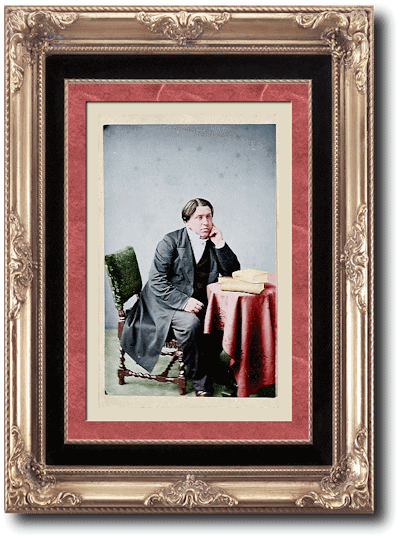posted by Phil Johnson
The PyroManiacs devote some space each weekend to highlights from The Spurgeon Archive. The following excerpt is from "False Professors Solemnly Warned," a sermon on Philippians 3:18-19, preached at Exeter Hall on 24 August 1856.

 AUL was the very model of what a Christian minister should be. He was a watchful shepherd over the flock; he did not simply preach to them, and consider that he had done all his duty when he had delivered his message; but his eyes were always upon the Churches, marking their spiritual welfare, their growth in grace, or their declension in godliness. He was the unsleeping guardian of their spiritual welfare.
AUL was the very model of what a Christian minister should be. He was a watchful shepherd over the flock; he did not simply preach to them, and consider that he had done all his duty when he had delivered his message; but his eyes were always upon the Churches, marking their spiritual welfare, their growth in grace, or their declension in godliness. He was the unsleeping guardian of their spiritual welfare.When he was called away to other lands to proclaim the everlasting gospel, he seems always to have kept an eye upon those Christian colonies which he had founded in the midst of heathen darkness. While lighting other lamps with the torch of truth, he did not fail to trim the lamps already burning. Here you observe he was not indifferent to the character of the little church at Philippi, for he speaks to them and warns them.
Note, too, that the apostle was a very honest pastor—when he marked anything amiss in his people, he did not blush to tell them; he was not like your modern minister, whose pride is that he never was personal in his life, and who thus glories in his shame, for had he been honest, he would have been personal, for he would have dealt out the truth of God without deceitfulness, and would have reproved men sharply, that they might be sound in the faith. "I tell you," says Paul, "because it concerns you."
Paul was very honest; he did not flinch from telling the whole truth, and telling it often too, though some might think that once from the lip of Paul would be of more effect than a hundred times from any one else. "I have told you often," says he, "and I tell you yet again that there are some who are the enemies of the cross of Christ."
And while faithful, you will notice that the apostle was, as every true minister should be, extremely affectionate. He could not bear to think that any of the members of the churches under his care should swerve from the truth, he wept while he denounced them; he knew not how to wield the thunderbolt with a tearless eye; he did not know how to pronounce the threatening of God with a dry and husky voice. No; while he spoke terrible things the tear was in his eye, and when he reproved sharply, his heart beat so high with love, that those who heard him denounce so solemnly, were yet convinced that his harshest words were dictated by affection. "I have told you often, and I tell you, even weeping, that they are the enemies of the cross of Christ."












3 comments:
Most excellent observation by Spurgeon. Along the same lines, I just finished reading a wonderful book that I humbly offer up as something every Christian ought to read.
http://www.monergismbooks.com/A-Portrait-of-Paul-Identifying-a-True-Minister-of-Christ-p-19052.html
I was delighted and convicted on many levels as I read this short book. This is a wonderful look at the God-called pastor, as seen in Paul's letter to the Colossians, with exhortations for the church member and the pastor at the end of each chapter. It is easy to read and comprehend, yet deep and rich in theology. I believe it would benefit any child of the living God - and strengthen the church.
Spurgeon nicely maneuvers between the pitfalls of accommodation and unduly harsh separationism.
I've read this several times and am amazed and edified by what I understand, but I think I'm missing a big part of Spurgeon's point because I don't understand what he means by being "personal".
From the context I gather that this is personal with the church, knowing members intimately and (or?) being willing to call them out by name when they sin. Obviously we have no way of knowing how many people Paul corrected personally in private, though I suppose most of us would consider this number to be large, but Spurgeon here speaks of being personal, what does he mean? I don't believe we should call out every unrepentant or abberant person out from the pulpit, but there is definitely a warrant for those who reject personal (in-person) confrontation.
Conversely we have those ministers today who are far too personal in the pulpit, who tell stories only about themselves, and are no pillar of Christian life to strive towards in a 1 Corinthians 11:1 way. I assume this is not what Spurgeon here means.
If someone understands this point better than I, please explain what Spurgeon means by a minister needing to be personal!
Thanks,
Canyon
Post a Comment